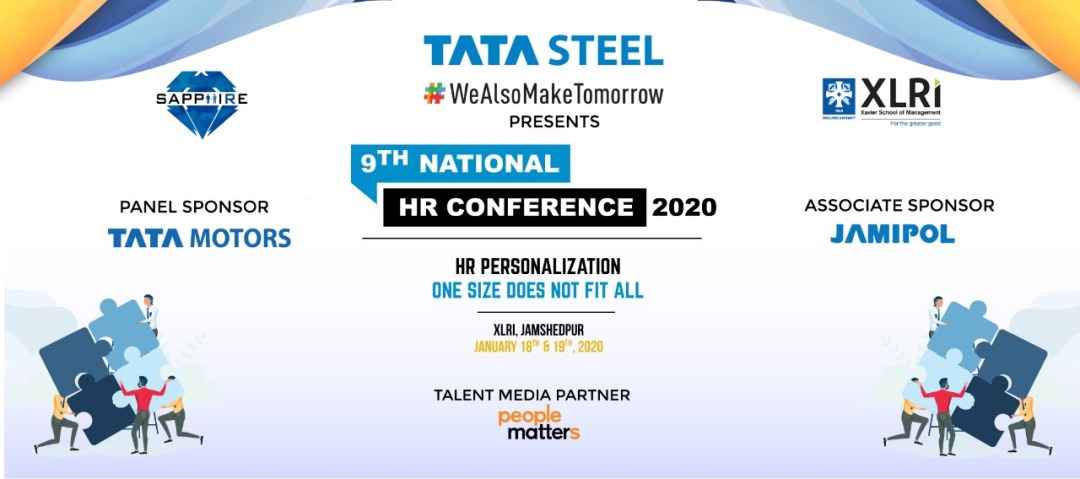Last weekend I attended the 9th National HR Conference at XLRI, Jamshedpur.

On 19th, I moderated a panel discussion on implications for HR in the era of the gig economy. The panelists were author and thought leader Abhijit Bhaduri, Shamita Chatterjee of Infosys, Suresh Tripathi of Tata Steel, Raj Narayan of Titan, Amitav Mukerji of ITC and Arvind Subramanian

Some views shared by the panelists were:

On 19th, I moderated a panel discussion on implications for HR in the era of the gig economy. The panelists were author and thought leader Abhijit Bhaduri, Shamita Chatterjee of Infosys, Suresh Tripathi of Tata Steel, Raj Narayan of Titan, Amitav Mukerji of ITC and Arvind Subramanian

Some views shared by the panelists were:
- Gig Economy is a reality, and India is among the top three countries with gig workers
- Gig workers were always a reality, but now with certain platforms they can offer their skills across geographies (these are the knowledge based gig workers)
- Gig workers come in all varieties: from semi-skilled (like drivers, delivery boys) to master "karigars" (example of master jewellery makers was shared by Mr. Raj Narayan ). Abhijit called these high end gig workers as "gig artists)
- Suresh of Tata Steel shared an interesting experiment they were doing, where workers can use 20% of their work time to do an external gig, thereby building additional skills and supplementing their incomes
- Gig economy does give rise to a power law, specially in the high skills market, where a few players can corner a high gains than the rest
- Abhijit said that maybe we were looking in the wrong place for inspiration. He said that we should be looking at the Indian movie industry where 80% of the workforce is comprised of gig workers. (I had posted something on the same lines 16 years ago)
- Shamita of Infosys shared that thanks to fears about cybersecuity and data security, hiring gig workers on IT projects is actually going down.
- Amitav of ITC opined that for low skilled gig workers, there will be a new kind of collectivism that will rise. He gave the example of loaders in Maharashtra, known as "mathadis" who are organised under a welfare board, set up in compliance to the Maharashtra Hamal, Mathadi and other unprotected workers (Regulation of Employment and Welfare) Act 1969.
- On a question about the Labour Laws lagging behind the reality of the gig workforce, the members of the panel agreed that the law will evolve and HR leaders have to have a constant dialogue with policy makers and educate them about the new reality
- There were concerns from the audience about the lack of a safety net for gig workers and the psychological aspect of not being part of a workforce, as well as the need for constant reskilling to remain relevant. Amitav said there was a business opportunity for companies who could make products like a pension scheme and insurance schemes for gig workers. Support networks for identity and mental health of gig workers were also pointed out as a necessity, especially those gig workers who are subject to the tyranny of algorithms
I might be missing out on some points, but I guess I've covered the big points in this post.
Here's a news item on the conference in The Telegraph